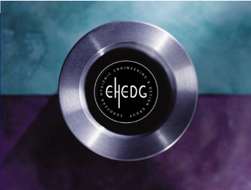Global Collaboration Advances Food Safety at GFSI 2025

Global Food Safety at GFSI Conference 2025
The 2025 GFSI Conference in Dublin united global food safety leaders—including EHEDG members—to drive innovation, collaboration, and harmonised standards, reinforcing the mission to protect consumers, reduce waste, and build more sustainable, science-based food systems over three impactful days.
A major highlight from the opening plenary was the ongoing effort to align food safety requirements globally. Grounded in Codex principles, GFSI benchmarking models are helping reduce inconsistencies across regions. EHEDG member Mondelēz International was spotlighted for its extensive adoption of GFSI-certified suppliers—over 30,000 globally—underscoring the company's commitment to safe and consistent supply chains across geographies.
In all sessions, a recurring theme was the importance of applying unified standards across entire supply chains, including indirect suppliers. GFSI’s openly accessible resources are proving to be a key support for businesses of all sizes to meet these expectations. As food systems become increasingly complex, GFSI’s role as a bridge between private enterprise and regulators is more critical than ever. Through benchmarking audits and continuous dialogue with authorities, GFSI contributes to building mutual confidence in food safety systems—a principle closely aligned with EHEDG’s own mission to ensure hygienic design as a foundation of safe food production.
The conference closed with a powerful message from Professor Patrick Wall of University College Dublin, who called for a renewed effort to restore consumer trust in food systems—an objective EHEDG fully supports through its work in hygienic engineering and education. As the industry looks ahead, EHEDG continues to collaborate with global partners to raise standards, share best practices, and create safer, more sustainable food systems.
With hygienic design increasingly recognised as a critical enabler of food safety, GFSI is now paving the way for its integration into food safety management systems through the JI and JII scopes. This development raises important questions for food manufacturers and equipment suppliers: how can these principles be effectively put into practice? And where can they turn for clear, science-based guidance? As a longstanding authority in hygienic engineering, EHEDG offers valuable resources to help stakeholders navigate these requirements with confidence and clarity.
The EHEDG White Paper on GFSI Hygienic Design JI & JII aims to offer support to all the farm-to-fork chain stakeholders in interpreting and applying the requirements of scopes JI/JII. Reference is given to relevant literature.
EHEDG Guideline 58, ‘Hygienic Design Risk Management’, aims to provide a step-by-step approach to hygienic design risk assessment and management for food manufacturing buildings and equipment, in line with other existing standards in its fundamental approach, and in line with the requirements as stated in the GFSI JI and JII scopes.


